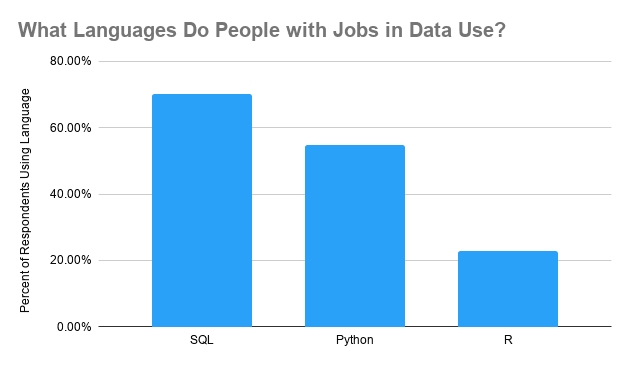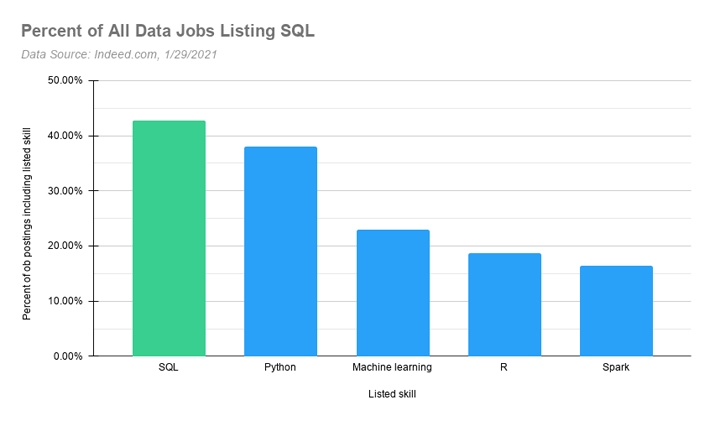Introduction
SQL keys are essential attributes used to access and identify tuples (rows) within a table, playing a key role in establishing relationships between tables. In this blog, we’ll delve into SQL Primary Keys, explore what a candidate key is in SQL, and highlight the significant differences between these two types of keys.
Both Primary Keys and Candidate Keys help identify unique tuples within a table. However, a table can have only one Primary Key, while multiple Candidate Keys can exist within a database relation.
Let’s take a closer look at the definitions and roles of these critical SQL keywords below.
What is Candidate Key and Primary Key?

- Candidate Key – Well, what is a candidate key in SQL. A candidate key SQL is a column or a set of columns that can qualify as a primary key in the database. There can be multiple SQL candidate keys in a database relation and each candidate can work as a primary key for the table.
- Primary Key – A primary key is a column or a set of columns that identifies some record uniquely. Only one candidate key SQL can qualify as the primary key.
You have to be extra careful when deciding on the candidate or primary key. The incorrect selection may adversely impact the database structure and future Database normalization. To qualify the candidate SQL as the primary key, it should be Not Null and unique in the domain. When you start working on databases, you will realize that SQL primary keys are seldom changed.
Here are the few points to consider when converting a candidate key SQL to the primary key:
- Make sure that it does not contain any NULL value.
- Make sure that it is unique and does not repeat.
- Make sure that the primary key is not changed frequently.
Other than the primary key and the candidate key SQL, the next important concept to focus on is a foreign key. A foreign key in the database is the key from another table that refers to the primary key in the table being used.
Basic difference between Primary Key & Candidate Key
So, let's get to the major part of our discussion to answer, primary key vs candidate key.
|
Parameters for Comparison
|
Primary Key
|
Candidate Key
|
|
Basic
|
There can be only one primary key in a relation
|
They can be multiple SQL candidate keys in a relation.
|
|
Specify
|
It is not mandatory to specify a primary key for each relation.
|
It is not possible to define any relation without the candidate key SQL.
|
|
Null
|
No attributes of the primary key can contain Null values.
|
The attributes of the candidate key SQL can contain Null values.
|
|
Feature
|
A primary key defines the most important attribute of a relation.
|
Candidate key SQL features candidates that can be defined as the primary key.
|
|
Vice-versa
|
A primary key is the candidate key SQL.
|
Each candidate key SQL is not the primary key.
|
Primary Key vs Candidate Key
- The basic point of differentiation here is that there can be only one primary key in the schema and multiple candidate keys in a relation within the database.
- The attributes under the primary key can never be NULL as the major function of the primary key is to identify records in a relation uniquely. Even a primary key can be used as the foreign key in other relations, so it must not be Null so that it may reference a relation to find tuples in a referenced relation. However, the candidate key SQL can be Null unless the attribute constraint is specified, not null.
- It is not mandatory to specify a primary key but there cannot be a relation without a candidate key.
- Primary key describes the unique and most important attribute of a relation, whereas candidate key provides candidates among which one can be taken as the primary key.
- Every primary key is a candidate key but every candidate key is not the primary key. Candidate keys are frequently referred to as primary keys, secondary keys, and alternate keys too.
Now that we have learned the difference in primary key vs candidate key section let’s get an in-depth understanding of SQL primary keys.
All about SQL Primary Keys
A primary key is an attribute or a set of attributes that uniquely identify each tuple in a relation. There is one primary key for each relation within a database. Keep in mind that the primary key should never contain NULL values. In case, one column contains Null values then it cannot be defined as the primary key. Further, the values of attributes of the primary key need to be static and the value of attributes changes rarely.
One of the candidate keys qualifies to become a primary key. The rules that are followed by the candidate key SQL to qualify as the primary key include Null and unique parameters. If a relation contains an attribute that is defined as the primary key of some other relation then this attribute is called the foreign key. It is always advised to figure out the primary key of a database relation before you add other attributes to the relation as a primary key identifies each tuple uniquely.
It is always good to choose either a single attribute or a small number of attributes as the primary key that makes the relation handling easy. Let us understand the concept in depth with the help of an example below. Student {ID, First_name, Last_name, Age, Address} First, find out the possible number of SQL candidate keys for this relation. In this example, there are three SQL candidate keys: ID, First-name, Last-name. Out of these three, ID can be defined as the primary key because there are chances that two students share the same first and the last name but ID will remain unique in such cases.
What are the features of SQL Primary Keys?
- Primary key enforces the maximum integrity of the table.
- It always contains unique data only.
- The length of a primary key cannot exceed more than 900 bytes.
- A primary key can never contain the Null values.
- There should not be any duplicate value for the primary key.
- A table can contain only one primary constraint
- When we define the primary key constraint for the table, the database engine automatically creates unique index for the primary key column.
- In Oracle, it is not allowed for the primary key to include more than 32 columns.
- For a database programmer, it is a common practice to create a primary key, modify it, and remove it. To remove a primary key, you should use the drop keyword.
When you are working on complex database designs, a deep understanding of different SQL keys is necessary that includes a primary key, foreign key, candidate key SQL, composite key, super key, unique key, and more. There is a slight difference between them but you should be clear with the differences otherwise it may lead to serious confusion later.
Now that we have learned the difference in primary key vs candidate key section let’s get an in-depth understanding of Candidate key SQL.
What is a Candidate Key in SQL?
So, let's begin by answering what is a candidate key in SQL. A candidate key SQL is an attribute or a set of attributes that uniquely defines the tuple within a relation. As we know, there is more than one SQL candidate key in a relation. Out of all candidate keys, one candidate can qualify to become a primary key. Though each candidate key qualifies to become a primary key, only one should be chosen as the primary key. So, now you know more about what a candidate key is in SQL.
The rules that a candidate key SQL requires to become the primary key are the attribute values of the key can never be Null for any domain and it must be unique or static. If all candidate keys qualify to become a primary key then experienced DBA should take a decision to figure out the primary key. There is no relation possible to establish without a candidate key. Let us understand the candidate key with an example.
If we add some more attributes to Student relation, I discussed above. Student {ID, First_name, Last_name, Age, Address, DOB, Department_name} Here, we may identify two candidate keys that are ID and DOB. It will help you to understand the candidate keys are the one that uniquely identifies a tuple in a relation.
Points to Remember for SQL Key
- A column is named as the primary key that uniquely identifies each row within a table.
- To create a primary key in SQL, you should use the Primary key constraint to create or modify a table.
- When you can use multiple columns together as the primary key, then it is named as the composite primary key.
- To design a composite primary key, you should use as few columns as possible. It is good for storage and performance both, the more columns you add as the primary key, the more storage space you require.
- In terms of performance, limited data means the database can process much faster than your imagination.
Now that we have learned the difference in the primary key vs candidate key section let’s get a brief understanding of other SQL keys.
Different Types of SQL Keys

Although we had discussed what is a primary & what is a candidate key in SQL in detail, let's learn briefly about other keys. There are mostly 8 different types of keys in SQL(including primary & candidate key SQL) and each key has its different features :
- Super key: So when talking about candidate key vs primary key. We often forget to mention the super key. A super key is a group of simple or multiple keys that identifies lines within a table.
- Alternate Key: It is a column or group of columns in an array that uniquely identifies each row in that array.
- Compound Key: Each column may not be unique in its own right within the database. It possesses two or more attributes that allow you to recognise a particular record in a unique way.
- Composite Key: It is a combination of two or more columns that uniquely identify lines within a table. Combining columns ensures uniqueness, although individual uniqueness is not ensured.
- Surrogate Key: So when talking about primary key vs candidate key. We often forget to mention the surrogate key. This is an artificial key that identifies each record in a unique way and is called a replacement key. This sort of key is unique because they are created when you have no real primary key available.
- Foreign Key: The goal of foreign keys is to preserve the integrity of the data and to enable navigation between two different instances of an entity.
Now that we have learned the difference in primary key vs candidate key section let’s get an in-depth understanding of the 5 Top reasons to choose SQL as your career
5 Top Reasons to Choose SQL as Your Career
If you are wondering why you should have a career in SQL. Let's give you 5 top reasons you can't ignore!
1. SQL is everywhere
From Uber, Netflix, Airbnb, Facebook, Google, Amazon — the list goes on. Every powerful database system uses SQL to query and analyze data.
2. The SQL language is still the first language used for data processing
More than 70% of data scientists and data engineers use SQL.

Source: StackOverflow 2020 Survey
3. SQL is in demand
What's the top skill a recruiter is looking for in 2025 among data scientists and engineers? Yes, SQL!
With over 32,000 jobs related to the data advertised on Indeed, examining the key competencies identified in the job advertisements with the "data" in the title. SQL is in demand!

4. SQL Certification Makes life easy
With around 65% of data scientists and data analysts said to be using SQL. A Quality Certification course will make your brains sharper and give an ideal insight to rule the world of data. Becoming a recruiter’s ideal candidate.
5. Work Less Earn more
SQL is the simplest programming language in comparison to its modern counterparts.
It's an open-source and easily integrable programming language. So, with the right certification programs, you can skyrocket your career & boost your SQL Developer salary.
What now!
Now that we have learned the difference in primary key vs candidate key as well as covered almost every aspect of your understanding in the difference between candidate key and primary key. Lets share our final thoughts on it.
Conclusion
In the difference in primary key vs candidate key, we learned how different and similar these two keys are. Now, you have to be extra cautious when defining SQL keywords or SQL key types, mainly the primary key and the candidate key SQL for a relation within the database. All candidate keys can be a candidate key SQL for the primary key and DBA should make a decision here about the primary key based on certain rules that need to be followed to qualify as SQL primary keys.
Keep in mind that always choose the right primary key which is the very basic step in the database design. To know more about different SQL keywords, SQL Keys, and SQL shortcuts in detail, you should join the SQL certification program at the JanBask training to learn to use these keys practically.
Introduction
SQL Server Operator and Fuction
SQL Server Keys
SQL Server Queries
Differentiation
Career
Interview
Useful Resource
Tutorial
SQL Server Course
Upcoming Batches
Trending Courses
Cyber Security
- Introduction to cybersecurity
- Cryptography and Secure Communication
- Cloud Computing Architectural Framework
- Security Architectures and Models
Upcoming Class
2 days 10 Jan 2026
QA
- Introduction and Software Testing
- Software Test Life Cycle
- Automation Testing and API Testing
- Selenium framework development using Testing
Upcoming Class
2 days 10 Jan 2026
Salesforce
- Salesforce Configuration Introduction
- Security & Automation Process
- Sales & Service Cloud
- Apex Programming, SOQL & SOSL
Upcoming Class
7 days 15 Jan 2026
Business Analyst
- BA & Stakeholders Overview
- BPMN, Requirement Elicitation
- BA Tools & Design Documents
- Enterprise Analysis, Agile & Scrum
Upcoming Class
1 day 09 Jan 2026
MS SQL Server
- Introduction & Database Query
- Programming, Indexes & System Functions
- SSIS Package Development Procedures
- SSRS Report Design
Upcoming Class
1 day 09 Jan 2026
Data Science
- Data Science Introduction
- Hadoop and Spark Overview
- Python & Intro to R Programming
- Machine Learning
Upcoming Class
8 days 16 Jan 2026
DevOps
- Intro to DevOps
- GIT and Maven
- Jenkins & Ansible
- Docker and Cloud Computing
Upcoming Class
2 days 10 Jan 2026
Hadoop
- Architecture, HDFS & MapReduce
- Unix Shell & Apache Pig Installation
- HIVE Installation & User-Defined Functions
- SQOOP & Hbase Installation
Upcoming Class
2 days 10 Jan 2026
Python
- Features of Python
- Python Editors and IDEs
- Data types and Variables
- Python File Operation
Upcoming Class
1 day 09 Jan 2026
Artificial Intelligence
- Components of AI
- Categories of Machine Learning
- Recurrent Neural Networks
- Recurrent Neural Networks
Upcoming Class
9 days 17 Jan 2026
Machine Learning
- Introduction to Machine Learning & Python
- Machine Learning: Supervised Learning
- Machine Learning: Unsupervised Learning
Upcoming Class
1 day 09 Jan 2026
Tableau
- Introduction to Tableau Desktop
- Data Transformation Methods
- Configuring tableau server
- Integration with R & Hadoop
Upcoming Class
2 days 10 Jan 2026



























CM
Five pages of text, with no example code.. - You are not a coder are you? ^^
JanbaskTraining
Hey, Thanks for sharing your experience. For further insight, you can connect to us at https://www.janbasktraining.com/contact-us
Kyle Lee
Hi! It's a very informative blog about SQL Candidate Key & the difference between primary Key & Candidate Key. Can we also have an insight into other similar keys as well!
JanbaskTraining
Hey, we thank you for your comment and interest. For further information, you can connect to us at https://www.janbasktraining.com/contact-us
markyjones
When it comes to finding high-level SQL jobs these differences are very informative to interviews.
JanbaskTraining
Hey, Thanks for sharing your experience & query. We would be happy to help make a desirable decision. For further assistance, you can connect to us at https://www.janbasktraining.com/contact-us
Corbin Stewart
Hie, it's a lovely blog about SQL keys, especially the primary and secondary keys tips. I myself use SQL for programming. But one thing I can definitely say is that the SQL language is much simpler than other programming languages.
JanbaskTraining
Hey, thank you so much. We are grateful that our blog has been a help to you! For further insight do connect with us at https://www.janbasktraining.com/contact-us
Jax Williams
It's very underrated but it has some masterful reasons to increase salary & get jobs sooner.
JanbaskTraining
Hey, Thanks for sharing your experience. We hope our blog has assisted you in making better decisions. For further assistance, you can connect to us at
Caden Thomas
One thing to notice in addition to SQL keys is that they are very effective as they are considered to be very important in the digital world.
JanbaskTraining
Hey, Thanks for sharing your experience & query. We would be happy to help make a desirable decision. For further assistance, you can connect to us at https://www.janbasktraining.com/contact-us